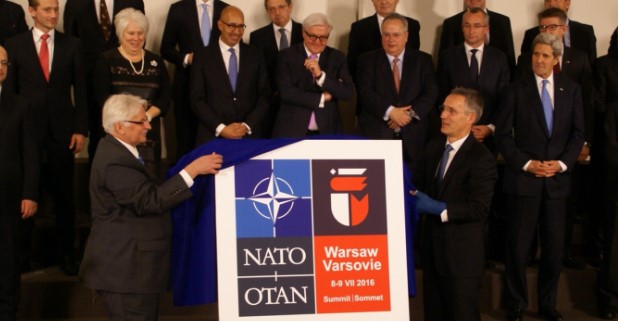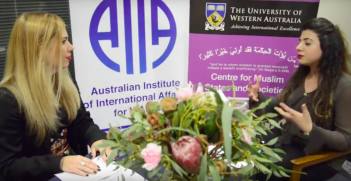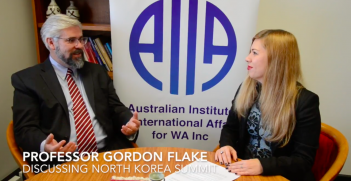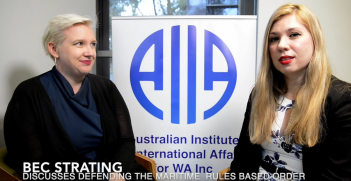The NATO Summit: A Polish View

NATO Secretary General Jens Stoltenberg says this year’s NATO Summit of Heads of State and Government coincides with the alliance’s most significant military reinforcement since the Cold War. On the eve of the meeting this weekend in Poland, the AIIA’s Fionn McGorry spoke with the Polish Ambassador to Australia HE Pawel Milewski. The interview touches upon Poland’s expectations for the summit and how an increase in troops in Eastern Europe will affect regional tensions.
McGorry: NATO forms a fundamental part of Poland’s security arrangements and Poland is playing host to the NATO Summit on 8-9 July in Warsaw. What are the priorities for the Summit?
Milewski: The summit in Warsaw should achieve three key objectives: first, it must be universal to respond to the challenges in the area of security of the entire alliance; second, it must be current so that decisions which will be taken are based on the latest data and analyses allowing NATO to take into account the most likely scenarios of the turn of events; and third, it must be decisional so that the provisions adopted in its course precisely define the way to strengthen the capacity of defence and deterrence.
McGorry: How do you think a general decrease in the defence budgets across European states will affect the summit?
Milewski: Indeed, decreasing defence budgets across Europe pose a challenge to maintaining defence and deterrence capabilities. We should bear in mind that national armed forces are the first responders in the early stages of any crisis. According to Article 3 of the Washington Treaty, the Allies are obliged to develop these forces constantly. Poland is investing substantially in its own defence with a contribution of over two per cent of GDP, including over 20 per cent on technical modernisation. Thus, in 2015 Poland fulfilled one of the Allies’ defence pledges from the 2014 NATO Summit in Newport.
McGorry: Can you give any insight into the Polish priorities for the summit?
 Milewski: We are of the opinion that the Warsaw summit should be marked by bold decisions and demonstration of NATO’s unity. Only allied solidarity and resolve backed by real military capabilities and deterrence will secure peace and stability. We want to ensure a long-term military adaptation of the alliance to the deteriorating security environment of today and surely of tomorrow. From Poland’s perspective there is a need to provide all NATO member states with equal security and in this context Poland is looking forward to the increased presence of the alliance on its eastern flank.
Milewski: We are of the opinion that the Warsaw summit should be marked by bold decisions and demonstration of NATO’s unity. Only allied solidarity and resolve backed by real military capabilities and deterrence will secure peace and stability. We want to ensure a long-term military adaptation of the alliance to the deteriorating security environment of today and surely of tomorrow. From Poland’s perspective there is a need to provide all NATO member states with equal security and in this context Poland is looking forward to the increased presence of the alliance on its eastern flank.
McGorry: Having only recently assumed office, Polish President Andrzej Duda has already said that increasing NATO’s presence in Central Europe will be a Polish priority at the summit. How do you think such an increase would affect regional tensions?
Milewski: Defence ministers of NATO countries agreed on the strengthening of forward military presence on the eastern flank at the February meeting in Brussels. Now, its details are determined in the context of the summit.
The significant constant presence of NATO in Central Europe, including infrastructure, technologically advanced defence systems, presence of land subunits, may increase the level of security of Poland and other allies in the region. The forward presence will be characterised primarily by multiculturalism, interoperability and support of appropriate logistic capacity and infrastructure. The idea is that there are always rotating units on the Polish territory creating the effect of a constant presence. They should not only exercise but should be able to engage in combat if a need arises.
It should be stressed that NATO contributes to the stabilisation of security in the region. All proposals for strengthening the defence capacity and deterrence are of defensive nature. NATO does not seek confrontation, NATO seeks only to ensure the security of its member states.
McGorry: Looking more broadly at Poland’s relationship with the EU, with former prime minister Donald Tusk’s appointment as president of the European Council, Poland’s global influence is very clear. How have perceptions of Poland changed during your time as a diplomat?
Milewski: Indeed, ever since Poland joined the European Union in 2004 our stature within the Union as the sixth biggest member state has gradually increased. In 2011, Poland held its first rotational presidency in the Council of the EU. Now that we are facing the challenges of Brexit, Poland is in favor of reforming the Union. The EU should be more open to opinions from member states and focus on acting in accordance with the subsidiarity principle. At the same time it is worth underlining that the recent polls reveal that over 80 per cent of Poles are in favor of Polish membership in EU with only 10 per cent opposing it. It is still one of the highest levels of support within all the EU member states.
McGorry: Poland joined the EU in 2004 and has been a fundamental player in its affairs since. Poles and other European citizens have benefitted from free movement of labour, capital, and a common market and currency. What impact do you foresee for Poland, as an EU member state, with the recent British vote to leave the EU?
Milewski: The result of the British referendum is a sovereign decision of the citizens of the United Kingdom and we respect it. Nevertheless, Poland would prefer to continue its cooperation with the UK within the European Union. In view of the forthcoming negotiations with the UK concerning the future relations with the EU, Poland is open in terms of the scope and character of the agreement. Bilateral relations between the EU and the UK should be pragmatic and mutually beneficial.
Now, as far as the implications of this process for Poland are concerned, the current situation of Poles living in the UK remains unchanged. The UK is still a member of the EU and is obliged to respect the rights of EU citizens who live in the UK. Poland will strive to guarantee the best possible regulations for Poles living in the UK after the Brexit is completed. In terms of bilateral relations, the UK remains one of the key partners of Poland. We would like to continue our dynamic political, social and economic cooperation.
McGorry: Do you think that any of the consequences of Brexit are likely to spill over into the Warsaw summit? Do you anticipate any ramifications for NATO?
Milewski: In the face of numerous challenges to Europe’s security, the UK as a strong member of NATO plays an important role in securing stability and security in Europe’s closest neighbourhood. We do believe that the UK will be actively engaged in the upcoming summit in Warsaw and will continue the activities and commitments connected with enhancing defence capabilities in NATO`s eastern flank.
His Excellency Mr Paweł Milewski is the Ambassador of the Republic of Poland to Australia. A career diplomat, Ambassador Milewski’s last position was as deputy director of the Department of Asia and Pacific in Poland’s Ministry of Foreign Affairs. Ambassador Milewski served six years at the Polish Embassy in Beijing.
Interviewer Fionn McGorry is currently interning with the AIIA National Office. He is a recent graduate in history and political science from Trinity College in Dublin, Ireland. This interview is published under a Creative Commons Licence and may be republished with attribution.





